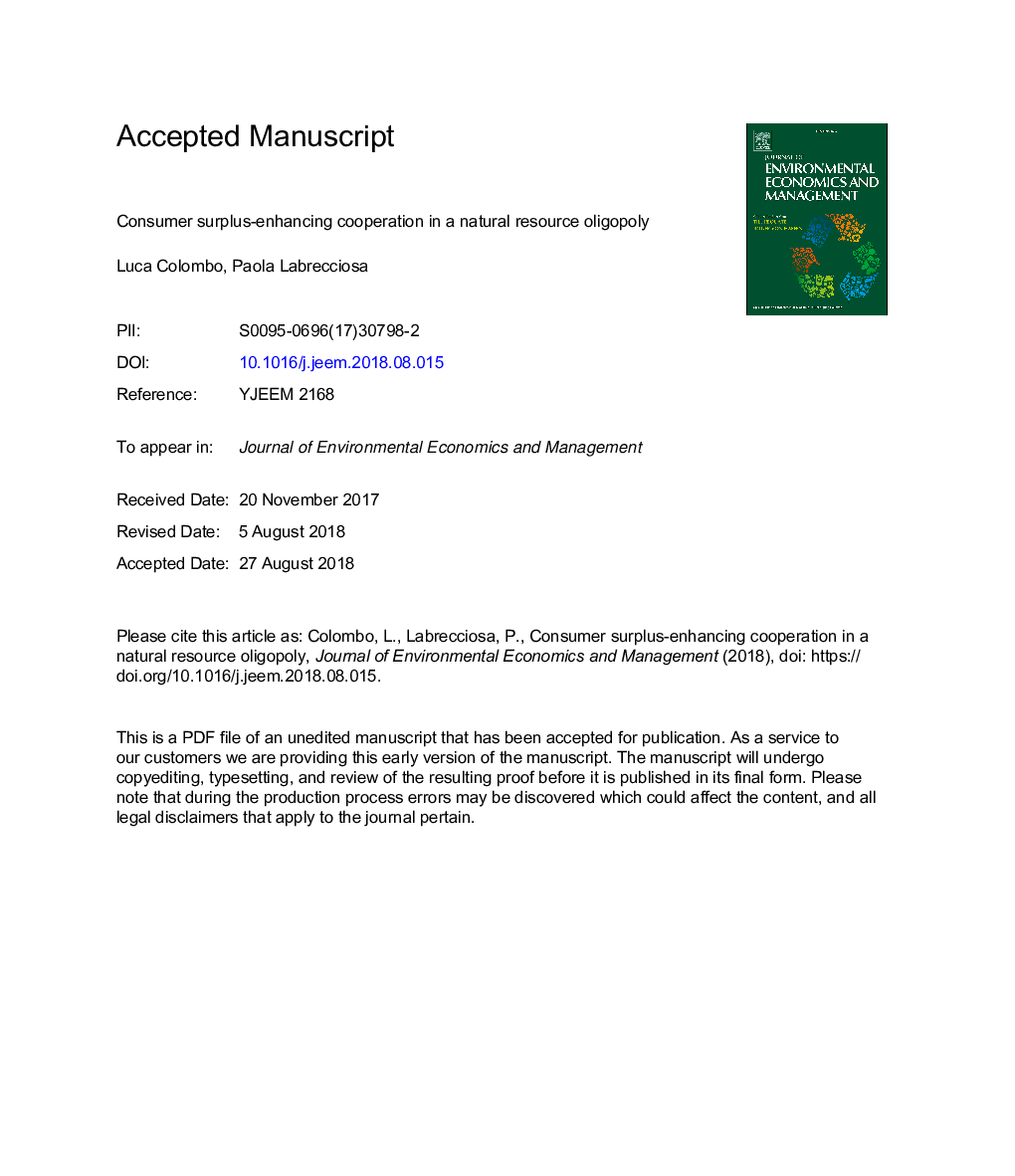| Article ID | Journal | Published Year | Pages | File Type |
|---|---|---|---|---|
| 11023355 | Journal of Environmental Economics and Management | 2018 | 23 Pages |
Abstract
In this study, we use a differential game to illustrate that cooperation among oligopolists selling a common-pool renewable resource may lead not only to higher industrial output, consumer surplus, and resource stock in the stationary equilibrium, but also a greater discounted sum of consumer surplus. A priori, this finding is not straightforward; an increase in the coefficient of cooperation causes industry output to first decrease and then increase over time, thus making consumers worse off in the short run and better off in the long run. This study establishes the conditions under which the long-run effects outweigh the short-run effects of cooperation, leading to an increase in the discounted sum of consumer surplus. Our analysis suggests that, in some cases, “conservation cartels” should be promoted on the basis of not only resource conservation but also efficiency.
Related Topics
Social Sciences and Humanities
Economics, Econometrics and Finance
Economics and Econometrics
Authors
Luca Colombo, Paola Labrecciosa,
